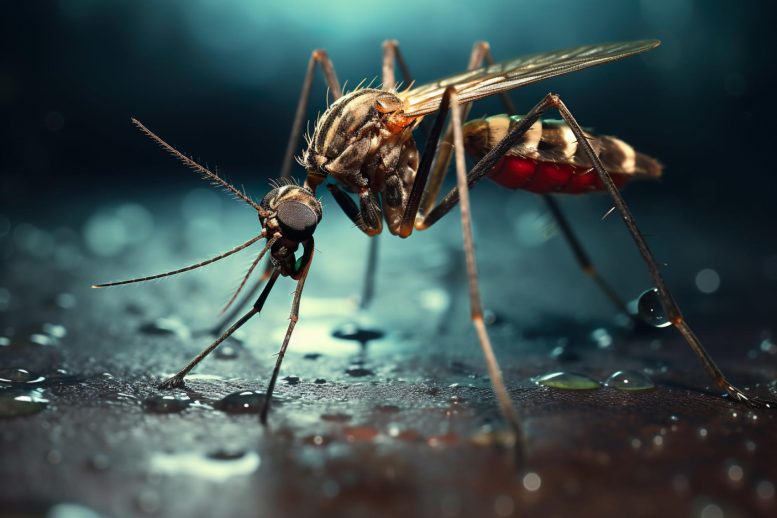
A new report suggests that current methods may significantly overestimate the multiplication rates of malaria parasites in a person’s bloodstream. This overestimation has crucial implications for assessing the potential harm these parasites can inflict on their host.
Moreover, the study’s findings hold consequences for comprehending the evolution of traits that result in drug resistance, the speed at which a parasite may propagate through a community, and the evaluation of new vaccine effectiveness.
The study was recently published in the journal Trends in Parasitology.
The researchers created a mathematical model of infection dynamics to identify that blood sampling biases and false inferences in previous computer models were leading to large overestimates.
“The inability to accurately measure those rates is concerning,” said Megan Greischar, assistant professor of ecology and evolutionary biology in the College of Agriculture and Life Sciences, and corresponding author on the paper. Lauren Childs, associate professor of mathematics at Virginia Tech, is a co-author.
“We had a very simple model for how you infer multiplication rates that didn’t work, so now we know we need something more robust,” Greischar said. This study explains how the problems in accurately measuring multiplication rates arise, she said.
Some candidate malaria vaccines act during a stage in the parasite’s life cycle when it replicates in the blood, so knowing its multiplication rates is key to evaluating a vaccine’s efficacy.
Infected mosquitoes pass the malaria parasite into a human host during a blood meal. The parasites then multiply first in liver cells before moving into red blood cells. There, in synchrony with each other, parasites replicate inside the red blood cells and burst out into the blood, killing the cells. The daughter parasites then continue the next cycle and invade new red blood cells. This cycle repeats about every 48 hours.
When it comes to measuring multiplication rates, clinicians take blood samples from infected patients and count the number of parasites observed. Timing is important, as young parasites that are early in their life cycle after bursting from red blood cells are easy to see. But as they age, later in the cycle, they become sticky, attach themselves to blood vessel walls, and do not circulate. Since the cycle repeats again and again, the samples’ timing determines whether high or low numbers are observable in the blood.
Sampling bias increases when samples are taken later in the cycle when observable parasites are low, versus early in the cycle when counts of young parasites are high.
Previous models used for estimating parasite multiplication rates tried to correct for this sampling bias by inferring how many parasites might exist later in a parasite brood’s life cycle when they can’t be directly observed. This study suggests that those methods were insufficient to determine how fast parasites actually multiply.
Previously published studies measured the maximum number of offspring produced by a human malaria parasite (Plasmodium falciparum) within a single 48-hour cycle of replication in artificial culture.
“They should only be able to multiply at most 32-fold, which is quite large already,” meaning a single parasite could create 32 daughter parasites, at most, with a median of about 15 to 18, Greischar said.
Using a mathematical model, combined with both modern and historical data from people infected with malaria, the researchers were able to identify that inferences made in previous models of parasite counts led to parasite multiplication rates that were orders of magnitude higher than what was possible.
“We were seeing thousand-fold growth,” Greischar said. “That would mean that the parasites were making more than 1,000 parasites from a single red blood cell, repeatedly, which does not match with our understanding of the biology of these parasites.”
Now that Greischar and Childs have identified the problem, the next steps could include developing techniques to infer the hidden fraction of the parasite population in order to accurately calculate their multiplication rates.
Reference: “Extraordinary parasite multiplication rates in human malaria infections” by Megan A. Greischar and Lauren M. Childs, 17 June 2023, Trends in Parasitology.
DOI: 10.1016/j.pt.2023.05.006
The study was funded by the College of Agriculture and Life Sciences and the National Science Foundation.